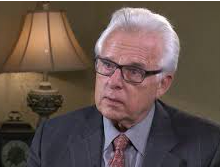 |
| Wesley Smith |
When activists successfully legalized assisted suicide in California, they persuaded the California Medical Association to shift from opposition to neutrality with the promise that no doctor would be forced to participate. But here’s the thing with assisted suicide: Such promises are made to be broken.
Now that assisted suicide is well-ensconced in California culture, a bill has been filed that would destroy medical conscience for doctors who oppose assisted suicide. From SB 380 (new text in italics):
Refuse that complicity and the doctor could face being sued for malpractice or being subjected to professional discipline. If the patient claimed the doctor falsely asserted he would participate in assisted suicide, he or she could face an even more egregious penalty for engaging in “coercion or undue influence.”
If this bill becomes law — and there is little reason to think it won’t considering how radical California’s legislature has become — every doctor in California could be forced to be complicit in ending patients’ lives as a condition of continuing in their profession and/or being able to obtain malpractice insurance.
Among other great harms, such a public policy could cause a serious brain drain. Think about it. Doctors with decades of experience treating the most serious illnesses might well decide to retire rather than be forced to engage in lethal activities they consider immoral, unethical, and/or in violation of their religious beliefs.
Assisted-suicide activists always pound their chests that their cause is about “choice.” But because many doctors oppose prescribing poison, the sponsors of this bill want to leave doctors no way out. The culture of death brooks no dissent.
Now that assisted suicide is well-ensconced in California culture, a bill has been filed that would destroy medical conscience for doctors who oppose assisted suicide. From SB 380 (new text in italics):
(3) If a health care provider is unable or unwilling to carry out a qualified individual’s request under this part and the qualified individual transfers care to a new health care provider or health care facility, the individual’s medical records shall be provided to the individual and, upon the individual’s request, timely transferred with documentation of the date of the individual’s request for a prescription for aid-in-dying drug in the medical record, pursuant to law.Here is what that would mean. A physician who refused to prescribe poison to a legally qualified patient — perhaps because of religious beliefs or wanting to simply follow the Hippocratic Oath — would be obliged upon the patient’s request to find another doctor he or she knows is willing to prescribe. In other words, finding the participating M.D. would be the doctor’s responsibility, not the patient’s.
(4) Failure to provide information about medical aid in dying to an individual who requests it, or failure to refer upon the individual’s request to another health care provider or health care facility that is willing to provide the information, is considered a failure to obtain informed consent for subsequent medical treatments.
(5) Neither a health care provider nor a health care facility shall engage in false, misleading, or deceptive practices relating to a willingness to qualify an individual or provide a prescription to a qualified individual under this part. Intentionally misleading an individual as to the willingness of a provider or facility to participate under this part constitutes coercion or undue influence.
Refuse that complicity and the doctor could face being sued for malpractice or being subjected to professional discipline. If the patient claimed the doctor falsely asserted he would participate in assisted suicide, he or she could face an even more egregious penalty for engaging in “coercion or undue influence.”
If this bill becomes law — and there is little reason to think it won’t considering how radical California’s legislature has become — every doctor in California could be forced to be complicit in ending patients’ lives as a condition of continuing in their profession and/or being able to obtain malpractice insurance.
Among other great harms, such a public policy could cause a serious brain drain. Think about it. Doctors with decades of experience treating the most serious illnesses might well decide to retire rather than be forced to engage in lethal activities they consider immoral, unethical, and/or in violation of their religious beliefs.
Assisted-suicide activists always pound their chests that their cause is about “choice.” But because many doctors oppose prescribing poison, the sponsors of this bill want to leave doctors no way out. The culture of death brooks no dissent.

No comments:
Post a Comment